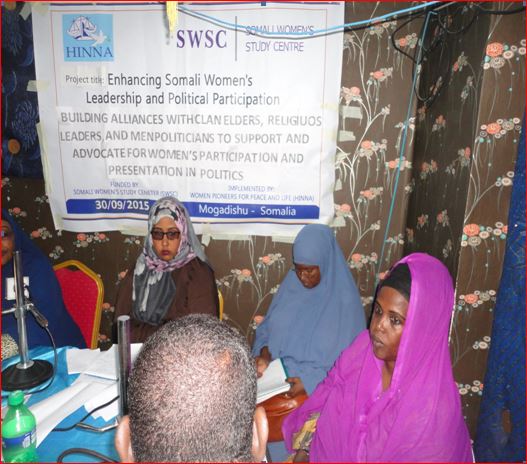Women’s political participation cannot be understood in isolation from its context. Cultural, historical and socioeconomic factors are some of the variables to take into account when defining the outlines of what is understood by political participation in each country. For example, in a pyramidal political system with a single party, political participation through the right to vote has clearly not got the same significance as a multi-party parliamentary system, with proportional representation.
Somali women remain under-representation in political area as a result of complex factors including poor knowledge of women, inadequate integration of women, existing gender inequality and traditional culture restricting women to be seen in public sphere. Despite all these obstacles, women are still struggling to fully engage in political life by any means.
Moreover, International Non-Governmental Organizations (INGOs) and Local Non-Governmental Organization (LNGOs) are involved in promoting women’s capacity to enable them to take part economic development and political stability of Somalia. Hence this is done through providing awareness campaigns to women and young girls to understand their rights and the best mechanisms they can find their rights.
On 30 September 2015 HINNA conducted radio debate in which 5 female from Civil Society Organization (CSO) together with government institutions gathered to discuss various agendas including how traditional elders can be persuaded to advocate women’s role in politics, how Somali women can develop an alliance with traditional elders, religious leaders and men politician and how Traditional elders can be persuaded to advocate and support women’s role in politics. There were also other questions which some of participants were asked individually.


